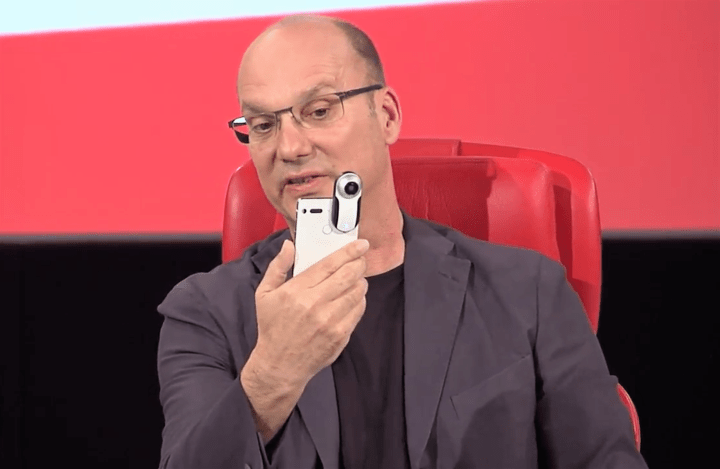
The glasses shown in Essential’s patent look much more like conventional frames than the design Google ultimately ran with. The display is embedded into the lenses, alongside multiple cameras. One faces the user to track their eyes, and the other looks outward to identify objects in the environment. When the latter camera recognizes something it its view, the glasses can present augmented reality overlays relevant to the subject.

With augmented reality becoming the next great frontier for software developers and hardware producers alike, it’s not totally surprising to learn that Essential has an interest in the space. The company isn’t rushing to the market in its infancy, however. Patents are no guarantee of future retail products, and Rubin and company have even publicly admitted that their phone — which can currently be ordered ahead of its release later in June — is not meant to equal Apple’s iPhone or Samsung’s Galaxy in terms of sales volume.
“We’ve gone after technologies and methods of manufacturing that aren’t designed to support 50 million devices,” Jason Keats, the company’s head of product architecture, told Wired in an interview. “We’re not for everybody. You know it’s going to be a little exclusive.”
So Essential is looking to expand slowly, and you likely won’t see its augmented reality plans bear fruit for some time. However, it’s also poised to expand in multiple directions. Those two little pins on the back of the PH-1 are there to further the phone’s capabilities in ways the company probably hasn’t even fully considered yet. Add that to the development of a Home hub meant to connect a network of disparate devices and Rubin’s creation of Playground, a startup accelerator firm, and it’s clear Essential’s vision doesn’t stop at what we learned this week.
Whether it will include these glasses is anyone’s guess.
Editors' Recommendations
- These AR glasses showed me the future of spatial computing — and I’m excited
- Lumus demonstrates futuristic 3,000-nit AR glasses at CES 2023
- I used the Nreal Air AR glasses to totally transform my iPhone
- Nreal’s Air AR glasses head to the U.S., ready to rock with iPhones
- Google is bringing its futuristic AR glasses to the real world … kind of


